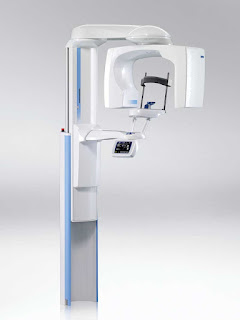How is a Cone Beam CT scan distinct from a customary CT Scan?
A typical CT examination stands for "computed tomography" - a kind of therapeutic imaging that syndicates numerous X-ray dimensions into computer-generated "slivers" of an entity, permitting the doctor to see inside the entity without penetrating it. A Cone-beam computed tomography (CBCT examination) is a sub-type of this examination which is completed on equipment made by Cone Beam CT Manufacturers that is heightened for usage in disciplines such as dentistry, orthodontics, oral surgery, and endodontics. The technology presented by equipment supplied by Cone Beam CT Suppliers is comparatively new and it produced a 3-dimensional image utilizing a revolving framework committed to an X-ray foundation and sensor. Owing to the cone-shaped basis of ionizing radioactivity that is focused through the part being inspected, a dental cone beam CTS yields hundreds of planar prognosis imageries during a solitary spin. This kind of CT examination varies from customary CT because their shaft shape permits for the amalgamation of the complete field of an apparition, while therapeutic CTs use a fan-shaped ray that necessitates assembling distinct image portions to generate a 3D picture.
A
CBCT scan is a harmless and common imaging method that is typically rapid and
unproblematic. It helps safeguard that the dentist or orthodontist gets the
most precise valuation conceivable of the fangs and jaws. Dental CT images are
economical likened to other imaging skills. As a dental scan/CBCT can give the
dentist an exhaustive view of fangs, jaw, gums, nerves, and sinuses – it can
help perceive and identify many illnesses.
These illnesses and difficulties comprise:
·
Airway slumber complaints such
as sleep apnea
·
TMJ
·
Bone malignancy, polyps, or
swellings
·
Breakages
·
Tooth root contagions, root
canals, or other glitches with the staple of the tooth
·
Gum glitches
·
Adenoidal Composition, includes
septum, turbinates’ and sinuses.
A CBCT examination cuts the radioactivity experience intensely
when likened to a therapeutic CT. It aids the dentists in the succeeding:
Providing
precise dimensions, counting outline and magnitudes of the jaw – which is
valuable for dental graft surgery, and taking sizes for oral applications
Perceiving
cuts that may specify serious ailment
Recognizing
the accurate position of an impurity in the fang.
Reimbursements of a CBCT image over the systematic CT image:
- 90% less
radioactivity experience as likened to CT examinations.
- Quick
process of 30 seconds to a minute as likened to a one-hour process in CT
images.
- No
uneasiness like claustrophobia or loud sound.
- This dental
examination process is rapid and effortless.
- CBCT
equipment made by Cone Beam CT
Manufacturers permits
the dentists to use flapless graft positioning, which is less intrusive
for the patient and decreases uneasiness and hurries up the reclamation
procedure.
- A CBCT scan
permits the dentists to gauge the amount of mandible obtainable so that
they can regulate not only if bone embedding is mandatory before enlisting
the graft but also the exact place where the graft must be located for
enduring accomplishment.
A
CBCT structure excites with its humble operability and incorporation into
mundane practices, tinier investigation times—counting complex appearance
acuity and lesser radioactivity dose—augmented X-ray tube efficacy and lower
copy misrepresentation because of actions of the patient. If you are on the
lookout for Cone Beam CT dealers,
please visit Ozahub.




Comments
Post a Comment